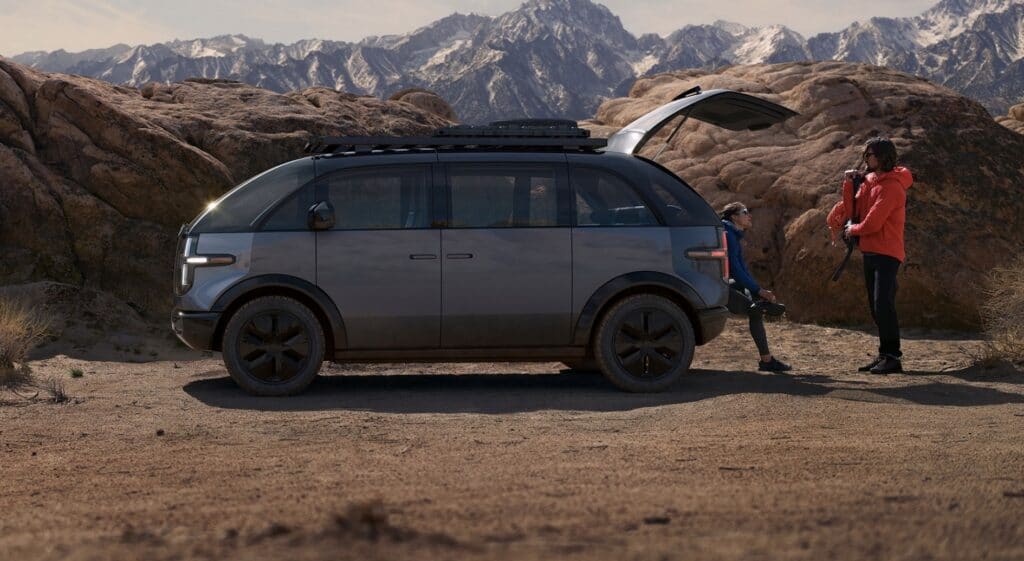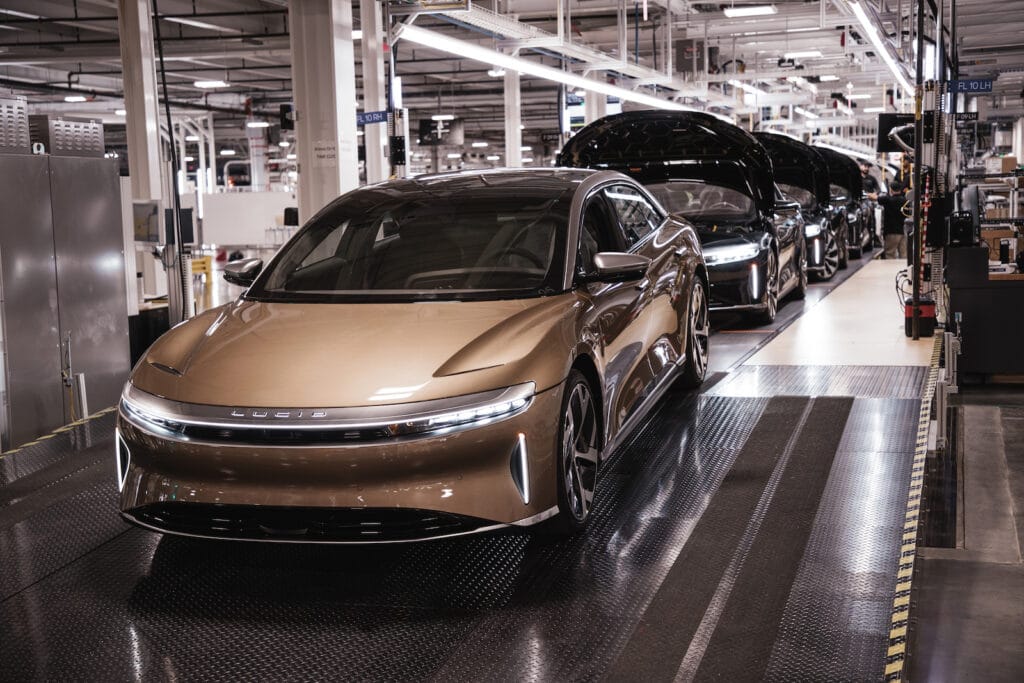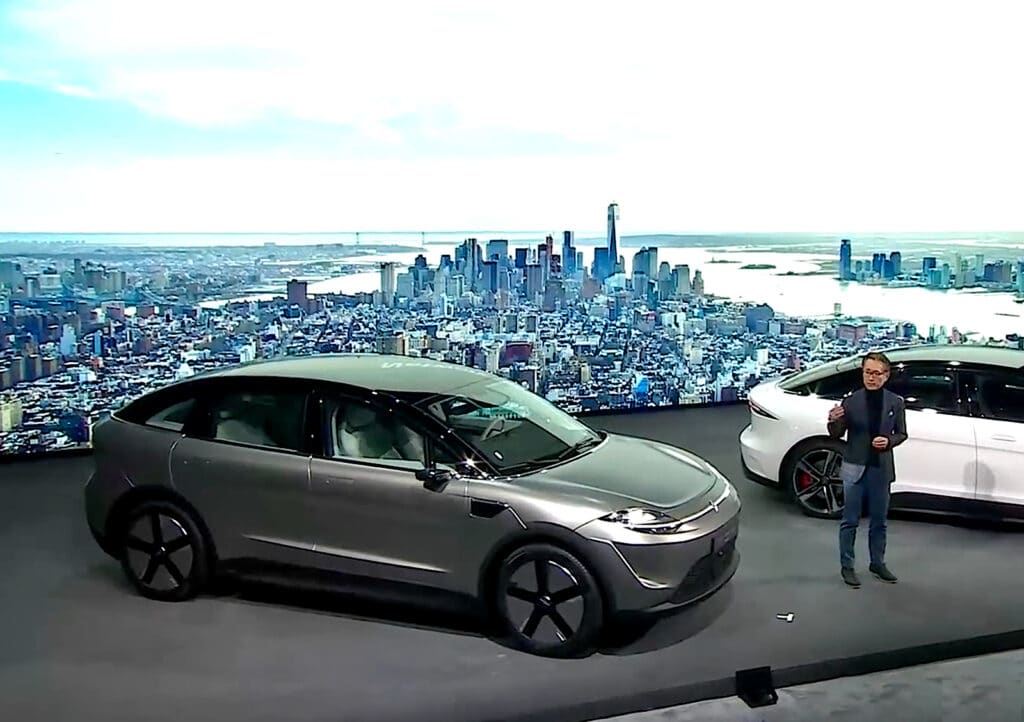Turmoil at Rivian, Apple Car as EV Startups Struggle
Struggling to meet production targets, EV startup Rivian is again shaking up its management ranks, with chief manufacturing engineer Charly Mwangi leaving for “personal reasons.”

The announcement by Rivian CEO R.J. Scaringe comes at a time when Rivian is facing a variety of setbacks, including a more than 80% plunge in its stock price. But Rivian is by no means alone. A variety of nascent EV makers are struggling simply to survive. And even the well-funded EV program at Apple faces new turmoil, the project’s latest director leaving the company after barely a year.
Only a few years ago, many industry analysts were forecasting a dramatic transformation of the auto industry as a wave of wannabe car companies laid out plans to crack into the business by focusing on EVs. But things haven’t worked out as expected. Some seemingly well-positioned manufacturers have shut down. Others, including Faraday Future, Canoo and Lordstown Motors, have yet to sell a single vehicle and are struggling simply to survive.
“Trying to scale up to manufacture a complex machine is very difficult as the upstarts have become aware of,” said Sam Abuelsamid, principal auto analyst with Guidehouse Insights.
Tesla cracks through — but faces challenges
Tesla is so far the only startup to gain real traction. It has posted record sales and earnings in recent quarters, and it is widely expected to top sales of 1 million vehicles for the first time this year, aided by the opening of two new assembly plants in Berlin and Austin, Texas.

But even Tesla’s luster has been tarnished a bit as so-called “legacy” automakers accelerate their own EV programs. A study by Reuters released late last year estimated they will spend a collective $515 billion this decade on battery technology, bringing hundreds of new models — such as the Ford F-150 Lightning, Cadillac Lyriq and Hyundai Ioniq 5 — to market over the next few years.
Tesla shares opened at $773.84 as Wall Street wrapped up the Memorial Day holiday. The automaker hit a 52-week high of $1,243.49.
Rivian: hot, then not
But its decline comes nowhere close to what has happened at Rivian. Even before its first R1T pickup rolled out last year, Rivian shares surged to an all-time high of $179.47. It began trading Tuesday morning at $32.34.
Rivian’s electric pickup, along with the R1S SUV, have received mostly favorable reviews. But it has struggled to get enough out of its Illinois assembly plant to meet demand.

Last week, CEO and founder Scaringe announced both a management shuffle — including the departure of Mwangi — and a reorganization of the company’s manufacturing operations. It splits off the retail side of the business from Rivian’s commercial operations — which have orders for 100,000 delivery vans for Amazon Prime.
“This is an important time for our growing business, all of which is happening in an extremely challenging environment,” Scaringe said in a statement. “We are well-positioned for long-term success, but we must continuously evaluate how we operate.”
Struggling startups
Only a small handful of startups have actual gotten vehicles into production. Last year saw Lucid begin the limited rollout of its Air sedan. But it also faces problems — both ramping up production and coping with rising production costs.
“The world has changed dramatically from the time we first announced Lucid Air back in September 2020,” CEO Peter Rawlinson said during an earnings call early in May. Among other things, Rawlinson said, Lucid was ordering a price hike as of June 1. The automaker’s top-end model, the Performance edition, will hold steady at $179,000. But other versions of the Air sedan are going up by as much as $15,000.
The question is how many other EV newbies will make it into production. Earlier this month, Canoo advised investors that it might not be able to make it into production.

“Our business plans require a significant amount of capital,” it said in a regulatory filing. “If we are unable to obtain sufficient funding or do not have access to capital, we will be unable to execute our business plans and could be required to terminate or significantly curtail our operations and our prospects, financial condition and results of operations could be materially adversely affected.”
After years of setbacks, Faraday Future now claims it will get its first product into production this year. And Lordstown Motors insists it can salvage plans to launch the Endurance pickup, even after selling its assembly plant in Lordstown, Ohio. But industry analysts are skeptical about the chances for survival by either of those companies.
New turmoil at Apple’s Project Titan
There are plenty of other EV wannabes, such as Fisker. And some have incredibly deep pockets, starting with Sony, the consumer electronics giant that announced plans to add a vehicle unit earlier this year.
Then there is Apple which has run a mysterious automotive program for the better part of a decade. During that time, however, the project appears to have gone through a long series of changes — and setbacks. At one point, Apple laid off virtually the entire development team.
It has now lost the director of the Apple Car program, Christopher “CJ” Moore. After less than a year, he announced last week plans to move to Luminar Technologies, a company focused on Lidar and machine learning systems.
Moore was brought into the Apple program following the departure of its previous boss. In the case of Douglas Field, he joined Ford as the new chief of its own EV program.
While Apple appears ready to keep going with what’s known internally as “Project Titan,” analysts warn that it is far from certain whether the program eventually will lead to a production model.
Auto Lovers Land
Comments
Post a Comment